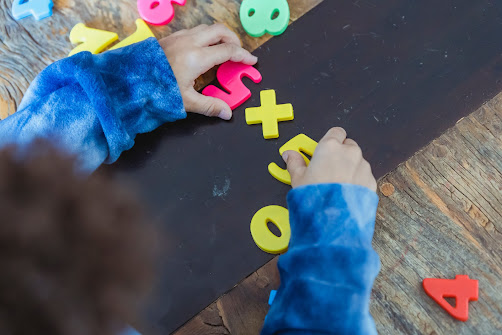Math is an important subject, and learning valuable math concepts begins as early as daycare. Children of that age may not be ready to perform advanced equations, but they can grasp math concepts and basic operations that they will be able to build on for years to come. We put together this short list of ways that math is an important part of daycare education to give you a different perspective on how much math matters at an early age.
Sorting and Sets
Sorting objects and grouping similar objects into groups begins with colored blocks in the daycare environment. This introduces children to the idea of things that are alike and things that are different and shows them how objects can be the same and different at the same time.
Counting
Simple counting can begin in infancy with a parent or daycare teacher counting off fingers, toes, and other items. In the Montessori environment, the tools are already in place to allow children to develop advanced math skills at an early age, but sorting and counting are among the first and simplest math concepts.
Recognizing Numbers
Learning to recognize the symbols for numbers, math operands, and other math tools begins in daycare, and Montessori children will be ready for more conventional math exercises early in their preschool period. Even authentic Montessori workstations like the Pink Tower or Binomial Cubes are intended to provide basic material at first but to later be manipulated in different, more advanced ways to accomplish other math goals.
Building Developmental Foundations
Montessori education is play-based and hands-on. That means that children are spending their school days involved in physical activities that teach them math, language, science, and other skills. Math is only one of many subjects that children will learn about, but math permeates so much of our lives that it can be found in most of the other activities as well.
Children who begin learning math in daycare are better situated for increasing their math skills in preschool, kindergarten, and elementary school. They will have already learned the basics of math and will have been introduced to ideas like currency, measuring, and simple addition and subtraction.





